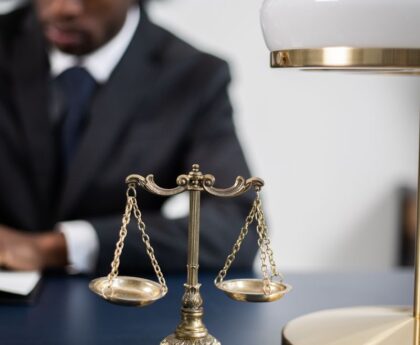Introduction
Labour has announced its intention to make the economy the centerpiece of its campaign for the next election. In her speech to the party conference, shadow chancellor Rachel Reeves outlined policies aimed at creating an “era of economic security” by cutting waste and driving growth. This strategy represents a shift for Labour, as it seeks to challenge the traditional stronghold of the Conservative party on economic issues. Reeves promised to wage a war against fraud, waste, and inefficiency, and unveiled plans to speed up projects such as battery factories and 5G infrastructure. The party’s focus on the economy is seen as a measure of its political confidence and a recognition that elections are often won or lost based on economic performance.
The Importance of the Economy in Electoral Campaigns
Historically, election campaigns have been heavily influenced by economic issues. Voters tend to prioritize their economic well-being and the stability of the country when choosing their representatives. Parties that can demonstrate a strong economic plan and offer reassurance about job security, income growth, and economic stability are more likely to resonate with voters. Therefore, it is no surprise that Labour has chosen to prioritize economic issues for its campaign strategy.
Leveraging the Economy as a Key Differentiating Factor
Labour’s decision to focus on the economy is a strategic move to differentiate itself from the Conservative party. Traditionally, the Conservatives have been perceived as strong on economic management, while Labour has been associated with social welfare and public services. By placing the economy at the center of its campaign, Labour aims to challenge the Conservatives’ dominance on this issue and present itself as a credible alternative capable of delivering economic growth and stability.
The Role of Rachel Reeves
Labour has been actively promoting Rachel Reeves, the shadow chancellor, to raise her profile and position her as a capable economic leader. Reeves has been praised for her economic knowledge and understanding of the big picture. This concerted effort highlights Labour’s commitment to presenting a credible economic team and sending a strong signal to voters that the party is serious about economic issues.
Economic Policies and Plans
In her speech, Rachel Reeves laid out several economic policies and plans that Labour intends to pursue if elected. The party aims to cut waste and inefficiency and crack down on Tory ministers’ alleged excessive spending habits, such as private jet use. Labour also plans to slash government consultancy spending, which has seen a significant increase in recent years.
Investment in Infrastructure
Labour’s economic plan includes a focus on infrastructure investment, with a particular emphasis on green energy, battery factories, and 5G projects. The party recognizes that infrastructure investment is essential for economic growth and the transition to a sustainable economy. Labour intends to hire 300 new planners across the public sector to expedite decision-making processes for major projects. This commitment to infrastructure investment has received support from industry professionals who see it as vital for reviving the economy and creating jobs.
Minimum Wage Increase
Labour has pledged to increase the national minimum wage, taking into account the real cost of living. While specific figures were not provided, this commitment aligns with Labour’s focus on addressing economic inequality and ensuring fair wages for workers.
Combatting Fraud and Waste
Rachel Reeves emphasized Labour’s intention to wage a war against fraud, waste, and inefficiency. She proposed the establishment of an anti-corruption commissioner tasked with recovering money lost due to fraud and waste during the pandemic. This commitment resonates with voters who are concerned about the responsible use of taxpayers’ money and government transparency.
Critiques and Opposing Views
While Labour’s focus on the economy has been generally well-received within the party, there have been critiques from both internal and external sources. Some Labour delegates have called for the reinstatement of the northern leg of HS2, a high-speed rail project that was recently scrapped by the Conservative government. While Rachel Reeves did not commit to this in her speech, she did promise to commission an independent inquiry into the project if Labour comes into power.
Reaction from Unions
Unions, in general, have welcomed Labour’s economic plans. Unison general secretary Christina McAnea praised Rachel Reeves’ compelling vision and the commitment to economic growth. However, the left-wing pressure group Momentum has expressed disappointment with Labour’s plans, stating that they fail to address the substantial crises facing Britain.
Conflict with Unite Union
Labour has also faced challenges from its traditional ally, the Unite union. The union has called for the nationalization of critical infrastructure, including electricity and gas networks. This policy proposal is opposed by both Rachel Reeves and Labour leader Keir Starmer. The conflict between Labour leadership and the Unite union highlights the party’s internal challenges in maintaining unity and reconciling different factions within its base.
Conclusion
Labour’s decision to make the economy the centerpiece of its campaign strategy reflects its recognition of voters’ prioritization of economic issues. By focusing on cutting waste, driving growth, and promoting economic security, Labour aims to challenge the Conservative party’s dominance on the economy and present itself as a credible alternative. However, the party faces internal challenges and criticism from certain factions. As the next election approaches, Labour’s ability to effectively communicate and deliver its economic plan will be crucial in winning the confidence of voters.

<< photo by Austin Distel >>
The image is for illustrative purposes only and does not depict the actual situation.
You might want to read !
- Labour’s Economic Vision: Unveiling a Battle Plan for the Next Election
- Carney’s Stamp of Approval: Labour’s Rachel Reeves Receives Endorsement from Former Bank of England Governor
- Suzy Eddie Izzard: A Progressive Powerhouse Vying for Labour Candidacy in Brighton
- The Pros and Cons of Implementing a Universal Basic Income
- Florida Governor Ron DeSantis Campaign Engages Controversy with ‘Peaky Blinders’ Inspired Video




